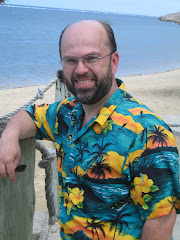
I am proud of my accomplishments last week. I created a single color-coded index card for each of the 88 chapters plus the prologue, interlude, and epilogue, and a four-page written storyboard for Catch a Falling Star. I also completed the prologue and transferred it to my new MacBook Pro.
Now, to Maui.
I’m going to miss the Maui Writers Retreat and Conference and probably won’t realize how much until years down the road.
No. That’s not true. I miss it now. Wish that I could have one more chance to attend with the wisdom of eight conferences behind me. I would do it right this time, the whole thing, instead of doing just a few things right by pure accident. I wouldn’t make the mistake of shoving my novels willy nilly under the indulgent noses of agents and editors before knowing to a moral certainty that they were ready.
Looking back, I know that they were not. They showed talent, but lacked the polish the professionals sought. So I became known to many as perseverant and determined and talented, but not quite ready. One agent even wrote to me, “This is 109.8% there. Unfortunately, I require 110%.” That one drove an iodine coated knife into my solar plexus and twisted. Looking back, I see that it’s best to stay under the radar until ready to make a splash. Looking back ... well, it’s time to stop looking back. And I will after considering the good things about my experiences there.
At the retreat, I had the opportunity of studying with some amazing writers like Gary Braver and Steve Berry, and was selected for Jacquelyn Mitchard’s masters class where six of us in addition to Jackie went over each other’s full novels in great detail. I learned more in those few weeks than in years on my own.
Most importantly, the retreat and conference afforded us all to mix and mingle in a magical setting of palm trees, breaking waves, and trade winds. Someone once said, “The paradox of the writer is how much time s/he spends alone trying to communicate with others.” These annual get-togethers let all of us know that we are not alone, that others know the agony of rejection on top of rejection, and a few the thrill of success.
I met so many wonderful people and made a few lifetime friendships there, including my amazing friend Dawn Ius, who was the first person to hear my true writing voice and made me listen to it. She did that at the retreat and conference in 2006.
I don’t mean to make light of my own writers group we call The Writerie, headed by my friend Kat Goldring, and including Glenna, Shirley, and Jane. In fact, I always look forward to my treks to Cleburne, Texas for our semi-monthly meetings and gain enormously from them. I’ve grown logarithmically under their eyes and hope I have helped some of them along the way.
I also don’t mean to slight the Wayward Writers online class headed by Ariel Gore. It’s so wonderful I can’t give it its due here. Soon. But as much as we comment on each other’s work and have our once-per-session conference call, I’ve never physically met any of them. I know many through their writing and comments, and they know things about me that few (if any) others know, but it’s not quite the same as in person discussions over lunch, drinks, or walking the beach at sunset.
Make no mistake, I need The Writerie and the Wayward Writers. But there is something special about a pack of writers converging on a place and hanging out that is nourishing and healthy. The Writerie and Wayward Writers are the meat and bread of my writer’s life diet. But the retreat and conference were the fruits and veggies. Maui itself, the dessert.
Looking forward, I need to find another conference, one where writers commune, both the highly successful and the not yet or not so successful. One where agents and editors gather to help us with valuable information on the business end that only they will know and look for that next bestseller. I’m not sure exactly how to look for that replacement yet, but I will start with Google, and see where the breadcrumbs lead.
I will find one somewhere, but it won’t have the spirit of aloha, or ohana. At least not in the beginning.
When I logged onto retreat and conference website and saw the cold letter from a law firm announcing that it was helping “... the Hawaii Writers Foundation with winding up its business operations,” my heart broke. I couldn’t believe it could go on and say that, “In light of this termination, there will be no further HWF sponsored Retreats or Conferences in the future.” A tiny little piece of me died that day.
So, mahalo nui loa to John and Shannon Tulius for all of the years of joy. Aloha mai e. And to Sam Horn, the presence of the retreat and conference. And to all the wonderful writers I met, and/or studied with and under, and/or had a drink with, and/or communed with. I hope to see all of you somewhere down the road.
I hope to see Maui one day soon as well. Because Maui no ka òi. And, what is a meal without dessert?
This week, I will begin the new outline for Falling Star and work on scene/sequel structure for the first few chapters. I’m setting myself a goal of two months to complete lucky draft 13.
I’ll let you know how I did next Sunday the Fourth of July.




